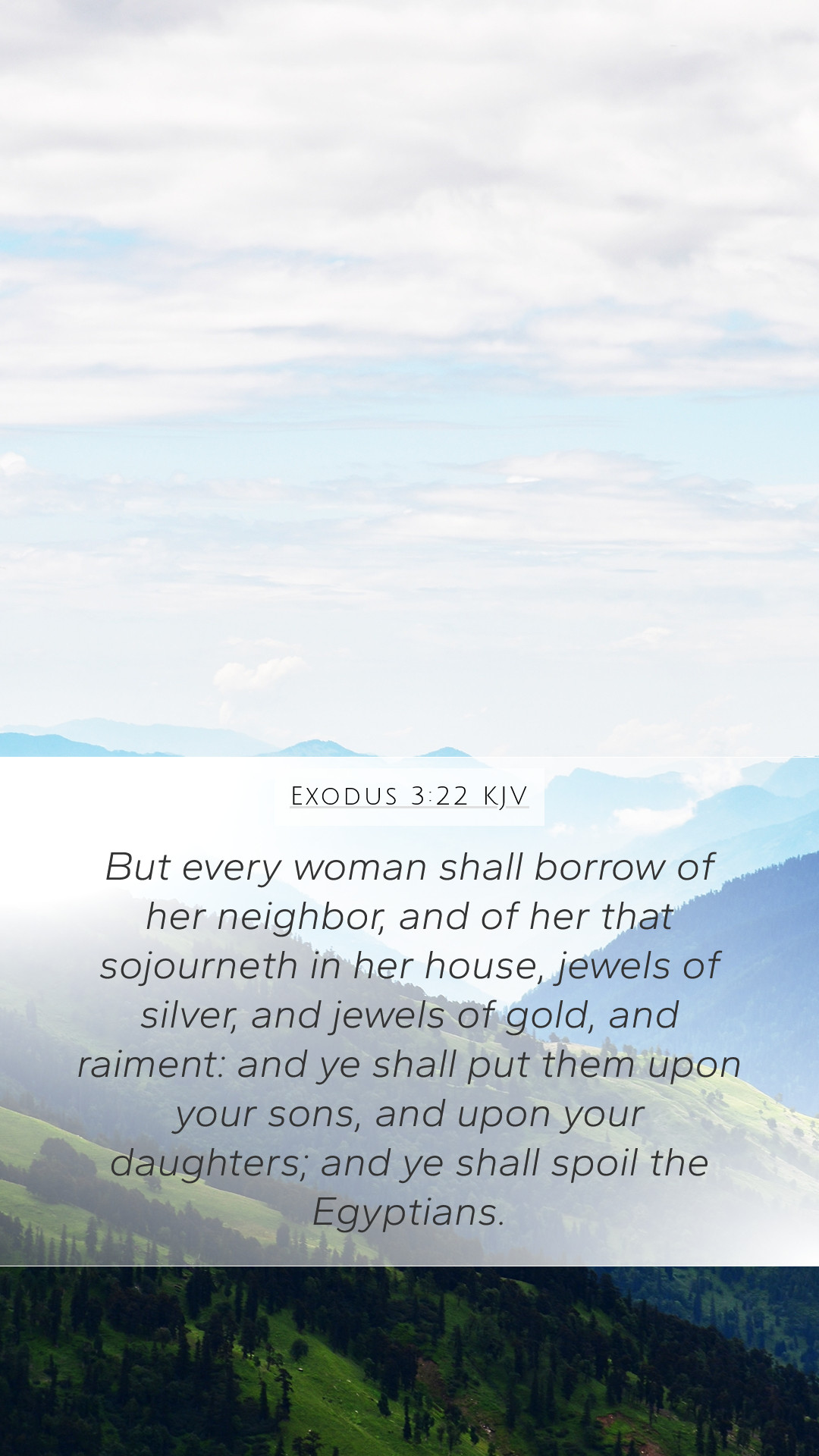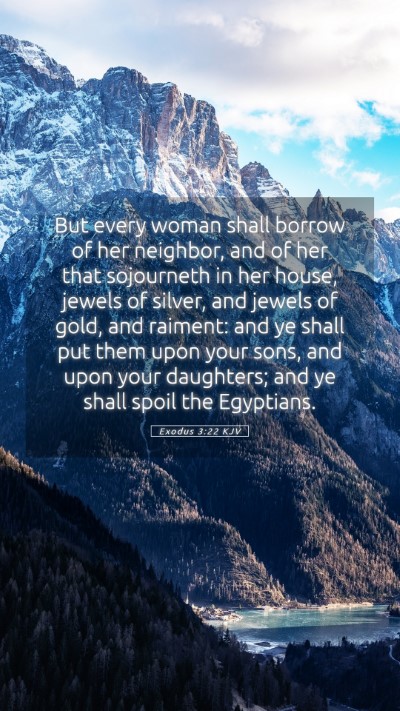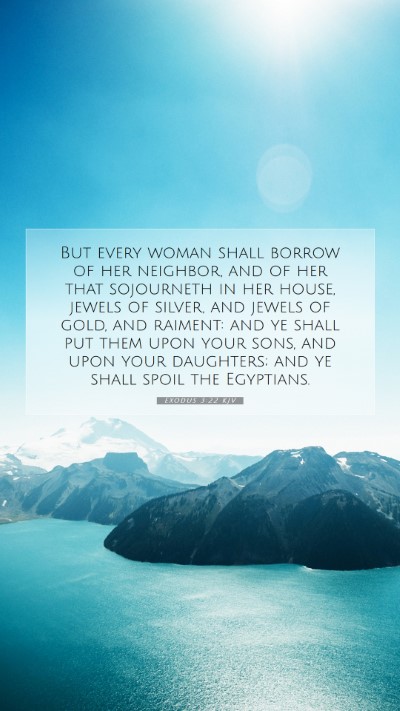Bible Verse Meaning and Commentary: Exodus 3:22
Verse Text: "But every woman shall borrow of her neighbour, and of her that sojourneth in her house, jewels of silver, and jewels of gold, and raiment: and ye shall put them upon your sons, and upon your daughters; and ye shall spoil the Egyptians."
Overview of Exodus 3:22
The verse comes from a pivotal moment in the Book of Exodus where God is preparing Moses to lead the Israelites out of slavery in Egypt. It reflects God's instruction to the Israelites on how to request goods from the Egyptians as they prepare for their exodus.
Commentary Insights
-
Matthew Henry:
Matthew Henry notes the significance of the Israelites receiving wealth from the Egyptians as a form of compensation for their years of slavery. The act of borrowing jewels and clothing indicates both a divine provision and a profound reversal of fortune, highlighting God’s justice and support for His people.
-
Albert Barnes:
Albert Barnes emphasizes that God commanded Israel to ask for these items in a way that would not only enrich them but also serve as signs of their new identity as a people freed from oppression. The act of asking signifies their transition from servitude to a state of dignity and honor as God’s chosen people.
-
Adam Clarke:
Adam Clarke elaborates on the symbolism of the items borrowed. He interprets the jewels of silver and gold as not merely material goods but as representations of God's favor and the blessings that come from obedience. The act of borrowing these items was also a prophetic act that foreshadowed their future prosperity in the Promised Land.
Thematic Elements
Exodus 3:22 touches on themes of:
- Divine Justice: God’s provision for His people reflects His commitment to justice and recompense, particularly against their oppressors.
- Identity and Dignity: The Israelites are transitioning from slaves to a people of value and worth, receiving the spoils of their captors as rightful heritage.
- Obedience to God’s Commands: The action of borrowing signifies trust and obedience to the Lord's directive, showing that He prepares His people for future blessings.
Applications for Today
Understanding what Exodus 3:22 means can offer modern readers valuable insights, such as:
- Recognizing that God often provides for His people in unexpected ways.
- The importance of asking for help or provision when in need, trusting in God’s direction.
- The transformative power of faith—transitioning from oppression to a place of hope and abundance through God’s grace.
Cross References
Exodus 3:22 can be viewed in light of related scriptures, which include:
- Genesis 15:14: God's promise of judgment upon the nation that enslaves His people.
- Exodus 11:2: God commands Moses to speak to the people about requesting items from the Egyptians.
- Psalms 105:37: A reminder of how God brought the Israelites out of Egypt, laden with silver and gold.
Conclusion
Exodus 3:22 serves as a rich source for Bible study insights, encouraging readers to explore the meanings behind narratives in Scripture. This verse illustrates God’s faithfulness and the honor He bestows upon His people, providing profound implications for understanding Scripture today.
Further Study Resources
For those interested in deepening their knowledge about Exodus and its narratives, consider exploring:
- Bible study groups dedicated to the study of Exodus.
- Online Bible study courses focusing on Old Testament themes.
- Bible study guides that include historical context around the Exodus story.
In summary, Exodus 3:22 not only highlights an essential moment in Israel's history as they prepare to flee slavery but also serves as a theological cornerstone reflecting God’s commitment to His people. This verse provides critical lessons on faith, justice, and the importance of divine provision in times of need.


